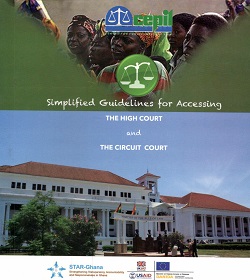 Studies has shown that the majority of citizens especially the poor and marginalized are unable to access justice through the legal system because of several factors. Some of the factors that inhibit the ability of the poor and marginalized to access justice in the courts include; the lack of information/knowledge or awareness of court processes and procedures, the location of certain category of courts, socio cultural limitations on some category of people, lack of access to financial resources, cost of hiring lawyers and legal institutions such as the filing fees.
Studies has shown that the majority of citizens especially the poor and marginalized are unable to access justice through the legal system because of several factors. Some of the factors that inhibit the ability of the poor and marginalized to access justice in the courts include; the lack of information/knowledge or awareness of court processes and procedures, the location of certain category of courts, socio cultural limitations on some category of people, lack of access to financial resources, cost of hiring lawyers and legal institutions such as the filing fees.
There is also a high rate of reluctance on the part of poor, and the marginalized e.g. women to be entangled with courts arising from the distance to the courts, the technical nature of the processes and procedures of the courts and the general intimidating nature of the justice system.
Though access to justice is more than improving an individual’s access to courts or guaranteeing legal representation, we believe opening up the courts to the poor, marginalized and disadvantaged group of persons who have been unable to use these institutions effectively is one means of improving access to justice for the poor and marginalized in Ghana. In other words simply demystifying or making the legal system more accessible or user friendly to the poor, marginalized and disadvantaged groups of persons is one sure way of increasing people access to the justice.










































